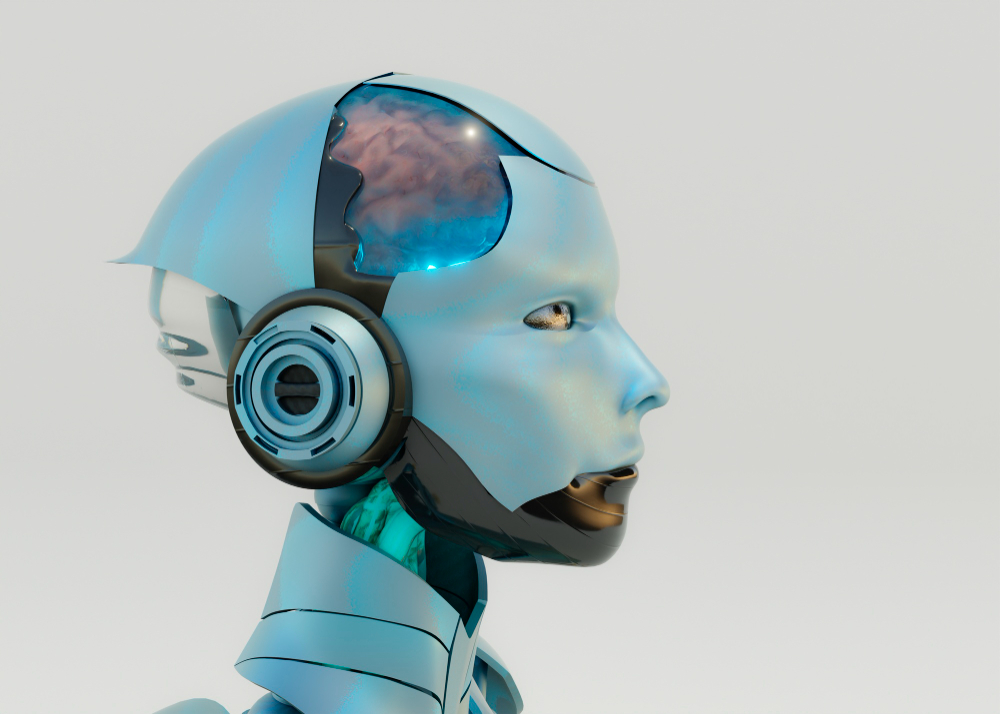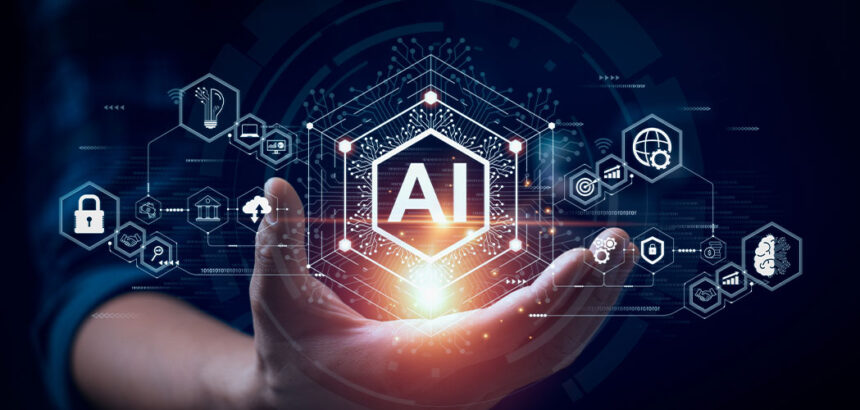Artificial Intelligence (AI) is no longer a concept confined to science fiction. It has rapidly moved from research labs to real-world applications, profoundly influencing industries across the globe. From automating mundane tasks to enhancing complex decision-making processes, AI is reshaping the way businesses operate and economies evolve. As AI technology continues to advance at an unprecedented pace, it is becoming a pivotal force in the modern world. Its implications stretch far beyond just business or technology, influencing global markets, societal structures, and even governance.
In this comprehensive analysis, we will delve into the intricacies of AI development, its applications across various industries, its economic ramifications, and the ethical challenges that accompany this revolution. The journey of AI is just beginning, and its potential is boundless. This post aims to explore the multifaceted role AI plays in transforming industries and reshaping the global economy.
Understanding Artificial Intelligence Development
At its core, Artificial Intelligence is the creation of systems that can perform tasks requiring human intelligence, such as learning, reasoning, problem-solving, and decision-making. The development of AI involves a range of technologies including machine learning (ML), deep learning, neural networks, and natural language processing (NLP). These technologies enable machines to learn from data, adapt over time, and make predictions or decisions based on the information they receive.
Machine learning, a subset of AI, is particularly pivotal in AI development. Through algorithms that analyze large datasets, AI systems are able to identify patterns and make decisions with little to no human intervention. Deep learning, a further advancement, mimics the structure of the human brain using neural networks to enhance the system’s learning capabilities, allowing AI to perform tasks like image recognition and speech processing with greater accuracy.
With the increased availability of big data and the exponential growth in computational power, AI systems have evolved from simple, rule-based processes to complex, autonomous decision-making systems. The convergence of these advancements has brought AI into the mainstream, creating profound changes in nearly every aspect of society.
AI’s Impact Across Key Industries
AI is influencing every corner of the global economy, and its applications are reshaping key industries in transformative ways. Let’s explore the impact AI is having on several critical sectors:
1. Healthcare: Transforming Patient Care and Medical Research
The healthcare industry is one of the most promising sectors for AI applications. AI-powered systems are revolutionizing diagnostics, treatment plans, and patient care in ways that were previously unimaginable. AI’s ability to process and analyze massive datasets, such as medical imaging, patient records, and genetic data, is enabling doctors to make more accurate diagnoses faster than ever before.
In diagnostic imaging, for instance, AI is increasingly used to interpret medical scans, such as X-rays and MRIs, identifying anomalies and potential diseases with accuracy comparable to or even exceeding human doctors. This development not only speeds up diagnoses but also reduces the potential for human error, improving patient outcomes.
Furthermore, AI plays a critical role in the development of personalized medicine. By analyzing patient data, AI systems can help design tailored treatment plans, improving the effectiveness of treatments while minimizing side effects. AI is also transforming drug discovery, where machine learning algorithms can analyze chemical compounds to identify promising new drugs, significantly accelerating the research process.
2. Finance: Redefining Risk Management and Investment Strategies

AI’s role in finance is expanding rapidly, with applications ranging from high-frequency trading algorithms to fraud detection and customer service automation. AI systems are able to analyze vast amounts of financial data in real-time, identifying patterns and predicting market movements. This capability allows investment firms to make more informed decisions and optimize their trading strategies, which can result in significant returns.
AI’s application in risk management has proven equally impactful. By analyzing historical market data and other relevant factors, AI systems can forecast potential risks and provide recommendations on how to mitigate them. In the realm of fraud detection, AI is used to identify suspicious patterns in financial transactions, helping institutions detect and prevent fraud before it causes significant damage.
Additionally, AI is transforming customer service in the financial sector. Chatbots and virtual assistants are now commonplace, assisting customers with everything from account inquiries to financial advice, ensuring a more streamlined and responsive service experience.
3. Manufacturing: Enhancing Efficiency and Reducing Costs
Manufacturing is another sector where AI is making substantial strides. With the integration of AI-driven automation, businesses are able to optimize their production processes, improve operational efficiency, and reduce costs. AI-powered robots are now used in assembly lines to perform repetitive tasks with precision, which not only reduces labor costs but also improves the consistency and quality of the products.
AI is also being used in predictive maintenance, a game-changer for manufacturers. Sensors embedded in machinery collect data on the health of equipment, and AI systems analyze this data to predict potential failures before they happen. This proactive approach minimizes downtime and extends the lifespan of critical equipment, saving companies millions of dollars in repair and replacement costs.
Moreover, AI is revolutionizing supply chain management. Machine learning algorithms are helping businesses forecast demand, optimize inventory levels, and ensure that products are delivered to the right locations at the right times, improving efficiency and reducing waste.
4. Retail: Personalizing the Consumer Experience
AI is having a profound impact on the retail sector, particularly in enhancing the customer experience. AI technologies, such as recommendation algorithms, are helping retailers provide personalized shopping experiences, offering product suggestions based on past purchases and browsing behavior. This level of personalization increases customer satisfaction and encourages repeat business.
In addition, AI is transforming inventory management and logistics in retail. By predicting customer demand and optimizing stock levels, AI ensures that products are available when customers need them while minimizing overstock and understock situations. AI is also being used in dynamic pricing strategies, where prices are adjusted in real-time based on factors such as demand, competitor prices, and customer behavior.
AI’s ability to analyze consumer sentiment and feedback on social media is also providing valuable insights to brands, helping them refine their marketing strategies and improve their products.
5. Transportation: The Rise of Autonomous Vehicles
AI is set to redefine transportation, particularly through the development of autonomous vehicles. Companies like Tesla, Waymo, and Uber are at the forefront of this innovation, using AI to develop self-driving cars that can navigate roads and make decisions without human intervention. These vehicles rely on machine learning algorithms to process data from cameras, sensors, and radar, allowing them to identify obstacles, read traffic signs, and make real-time decisions.
While fully autonomous vehicles are still in the testing phase, AI’s applications in transportation are already having an impact. AI-powered systems are being used to optimize logistics and delivery routes, reducing fuel consumption and increasing efficiency. In the aviation industry, AI is being used for predictive maintenance, ensuring that aircraft are serviced before problems occur, improving safety and reducing operational costs.
6. Entertainment: AI as a Creative Force
The entertainment industry is also experiencing the transformative effects of AI. AI is being used to create content, including music, art, and even movie scripts. With machine learning algorithms, AI can generate music compositions, write screenplays, and even create video game characters, enabling a new wave of creative expression.
Streaming platforms like Netflix and Spotify are already leveraging AI to personalize content recommendations based on user preferences. This ensures that users are exposed to new shows, movies, and music that match their tastes, increasing engagement and satisfaction.
AI is also playing a role in content moderation, helping platforms like YouTube and Facebook automatically identify inappropriate content, such as hate speech, graphic violence, or misinformation, improving the overall quality and safety of online platforms.
Economic Implications of AI Development
The development of AI is not only changing industries but is also having profound economic implications. These effects extend to job markets, productivity, and global competitiveness, all of which will be impacted as AI technology continues to evolve.
1. Job Displacement and Creation
AI’s rise has raised concerns about job displacement, particularly in industries where automation can replace human workers. Sectors such as manufacturing, retail, and customer service are especially vulnerable to this shift, as robots and AI systems can perform routine tasks more efficiently and cost-effectively than humans. However, while some jobs may be lost, AI is also creating new opportunities. Industries like AI development, data science, and robotics are expanding, and new roles will emerge in sectors that require human oversight, creativity, and problem-solving.
Governments and businesses must work together to address the challenges posed by AI in the workforce. This includes investing in retraining programs to equip workers with the skills needed for the jobs of the future.
2. Productivity Growth
AI has the potential to boost productivity across industries. By automating routine tasks, AI allows businesses to allocate human resources to more complex and strategic work. In sectors like healthcare, finance, and manufacturing, AI is helping increase output while reducing costs. As AI continues to mature, its ability to optimize processes and enhance efficiency will likely lead to higher levels of economic output and growth.
3. Economic Inequality
While AI promises significant benefits, it also risks exacerbating economic inequality. Large corporations and developed nations that have the resources to invest in AI are poised to reap the greatest rewards, while smaller businesses and developing economies may struggle to keep up. This disparity could widen the gap between rich and poor, both within countries and on a global scale.
4. Global Competitiveness
Nations that lead in AI development will have a competitive advantage in the global economy. Countries like the United States and China are investing heavily in AI research, with the goal of dominating emerging technologies that will define the future. As AI becomes a central component of various industries, nations that fail to invest in AI research and development may risk falling behind economically.
The Ethical Challenges of AI Development
As AI continues to develop, it raises a host of ethical concerns that must be carefully considered. Among the most pressing issues are:
1. Bias and Fairness
AI systems are only as good as the data they are trained on, and biased data can lead to biased outcomes. If AI systems are trained on biased or unrepresentative data, they can perpetuate harmful stereotypes and inequalities. For example, AI-driven hiring tools may favor certain demographics, leading to discriminatory practices. Ensuring fairness in AI development requires using diverse, representative datasets and implementing rigorous testing for bias.
2. Privacy
As AI systems collect vast amounts of personal data, privacy concerns are becoming increasingly important. AI-powered technologies like facial recognition, location tracking, and predictive analytics could infringe on individual privacy if not regulated properly. Striking a balance between leveraging AI for innovation and protecting individual rights will be crucial as AI becomes more ubiquitous.
3. Accountability
As AI systems become more autonomous, determining accountability for their actions becomes more complex. If an AI system makes a mistake or causes harm, who is responsible? Determining liability and creating clear accountability structures will be essential as AI continues to play a larger role in critical sectors like healthcare, transportation, and law enforcement.
In conclusion, AI development is set to revolutionize industries and reshape the global economy. While there are many potential benefits, including improved productivity, new business opportunities, and enhanced services, the challenges—such as job displacement, economic inequality, and ethical concerns—must be addressed carefully. As AI continues to evolve, it will be essential to ensure that its development benefits all of society, creating a future where technology and humanity work together for the greater good.

